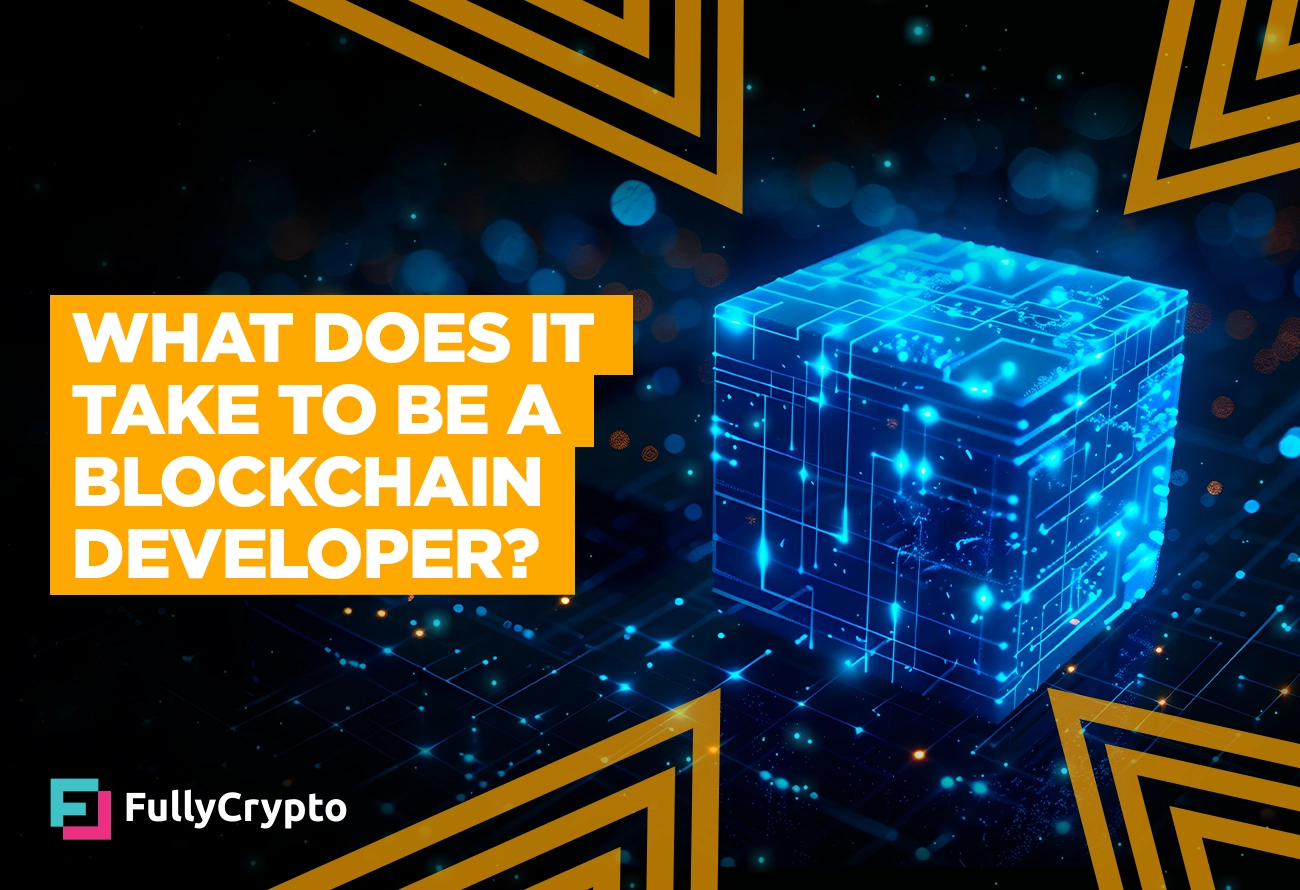![]()
By Mark Hunter
6 days agoWed Aug 07 2024 09:46:49

Reading Time: 2 minutes
- Blockchain technology is still in its infancy despite being over a decade old
- Developers will shape the future of blockchain with their expertise
- What skills and other talents do you need to be a blockchain developer?
Blockchain technology is still in its infancy despite being around for over a decade, and there is still a plethora of untapped uses for it. Developers will be the architects of blockchain’s future, and so there will be a demand for their services for some time to come. Becoming a blockchain developer requires a unique blend of skills, knowledge, and dedication, and in this piece, we examine exactly what these are and how you can excel in this cutting-edge field.
Foundational Knowledge and Skills
Programming Languages
Proficiency in programming languages is crucial. Blockchain developers often need to know languages such as Solidity (for Ethereum smart contracts), JavaScript, Python, and C++. These languages are essential for writing the code that powers blockchain applications and smart contracts.
Understanding Blockchain Architecture
A deep understanding of blockchain architecture is fundamental. Developers must grasp concepts such as decentralized networks, consensus mechanisms (like Proof of Work and Proof of Stake), and cryptographic principles. Knowledge of how these elements work together is essential for building and maintaining blockchain systems.
Data Structures and Algorithms
Blockchain technology relies heavily on complex data structures and algorithms. Developers need to be adept at working with linked lists, hash functions, Merkle trees, and more. This expertise ensures efficient data storage and retrieval, which is critical for blockchain’s functionality and security.
Advanced Knowledge and Specialized Skills
Smart Contracts and DApps
Expertise in creating smart contracts and decentralized applications (dApps) is vital. Developers should be comfortable using platforms like Ethereum, Hyperledger, and EOS. Understanding how to write, deploy, and maintain smart contracts is a key component of a blockchain developer’s role.
Security
Security is a top priority in blockchain development. Developers must be skilled in identifying and mitigating potential vulnerabilities. This includes knowledge of common security practices and staying updated on emerging threats and solutions in the blockchain space.
Development Tools
Familiarity with blockchain development tools and environments is necessary. Tools such as Remix, Truffle, and Ganache for Ethereum development, as well as version control systems like Git, are integral to the development process.
Continuous Learning and Adaptation
The blockchain industry is rapidly evolving. To stay relevant, developers must commit to continuous learning and adaptation. This involves keeping up with the latest developments, participating in blockchain communities, and possibly contributing to open-source projects.
Attending conferences, webinars, and completing certifications can also enhance a developer’s skills and knowledge.
Conclusion
The career path for a blockchain developer can be rewarding and diverse. Opportunities exist in various sectors, including finance, supply chain, healthcare, and beyond. Roles can range from blockchain engineer and smart contract developer to blockchain architect and security analyst.
In conclusion, becoming a blockchain developer requires a strong foundation in programming and blockchain principles, advanced knowledge in smart contract development and security, and a commitment to ongoing learning. With these skills and dedication, aspiring developers can thrive in the dynamic and expanding world of blockchain technology.


